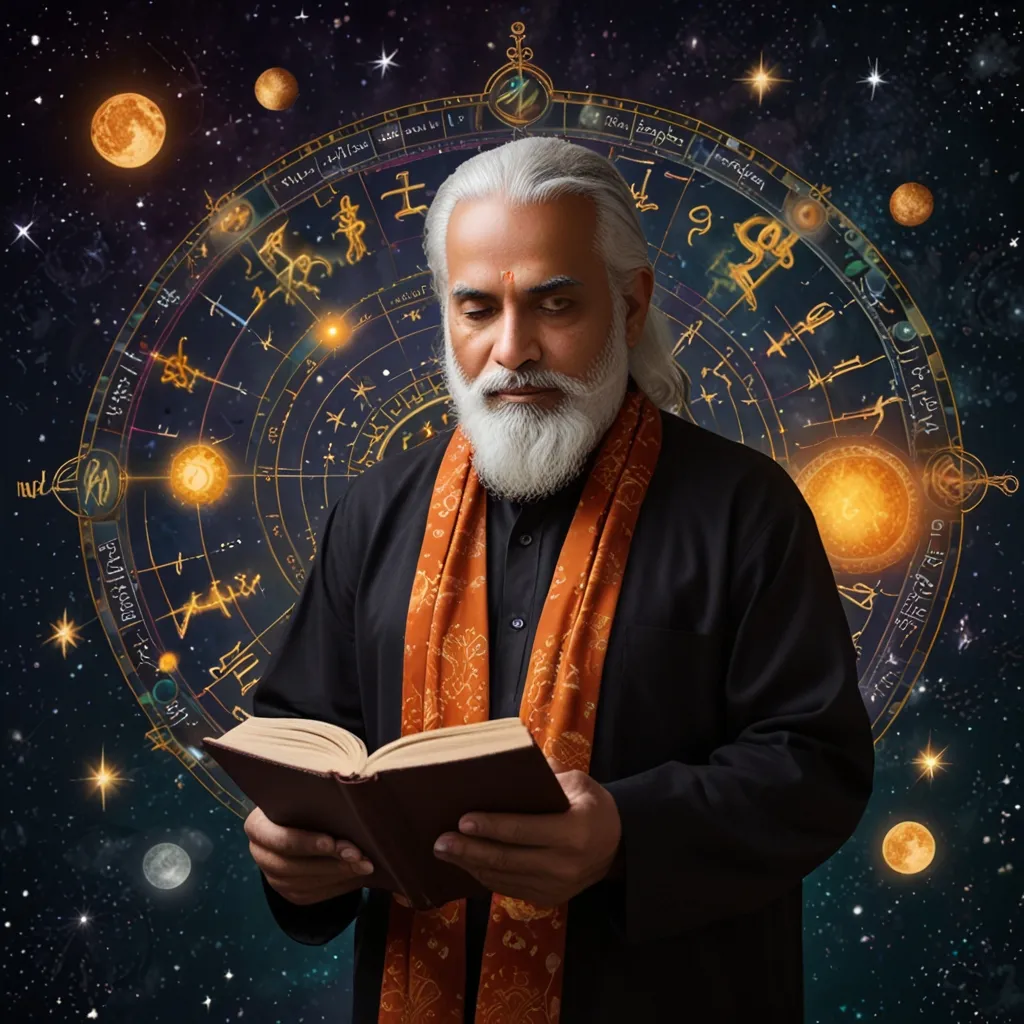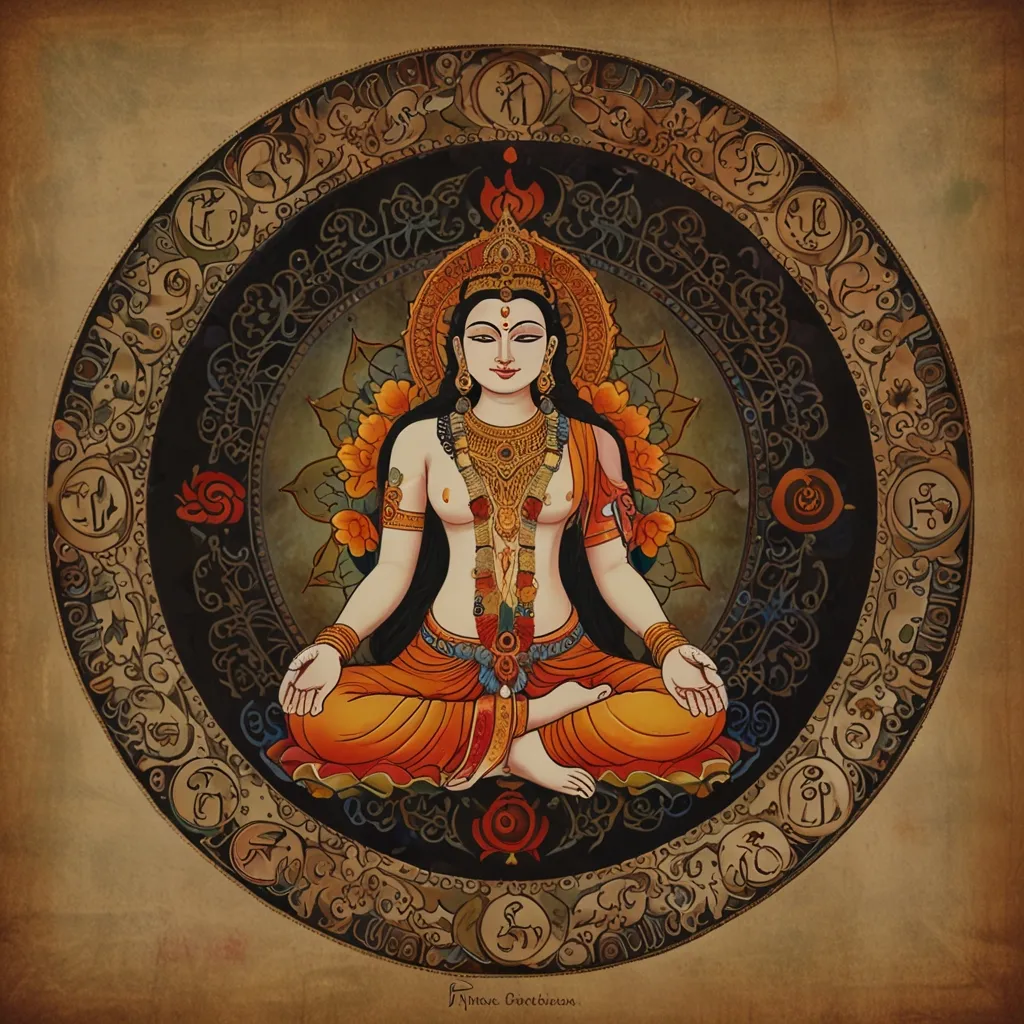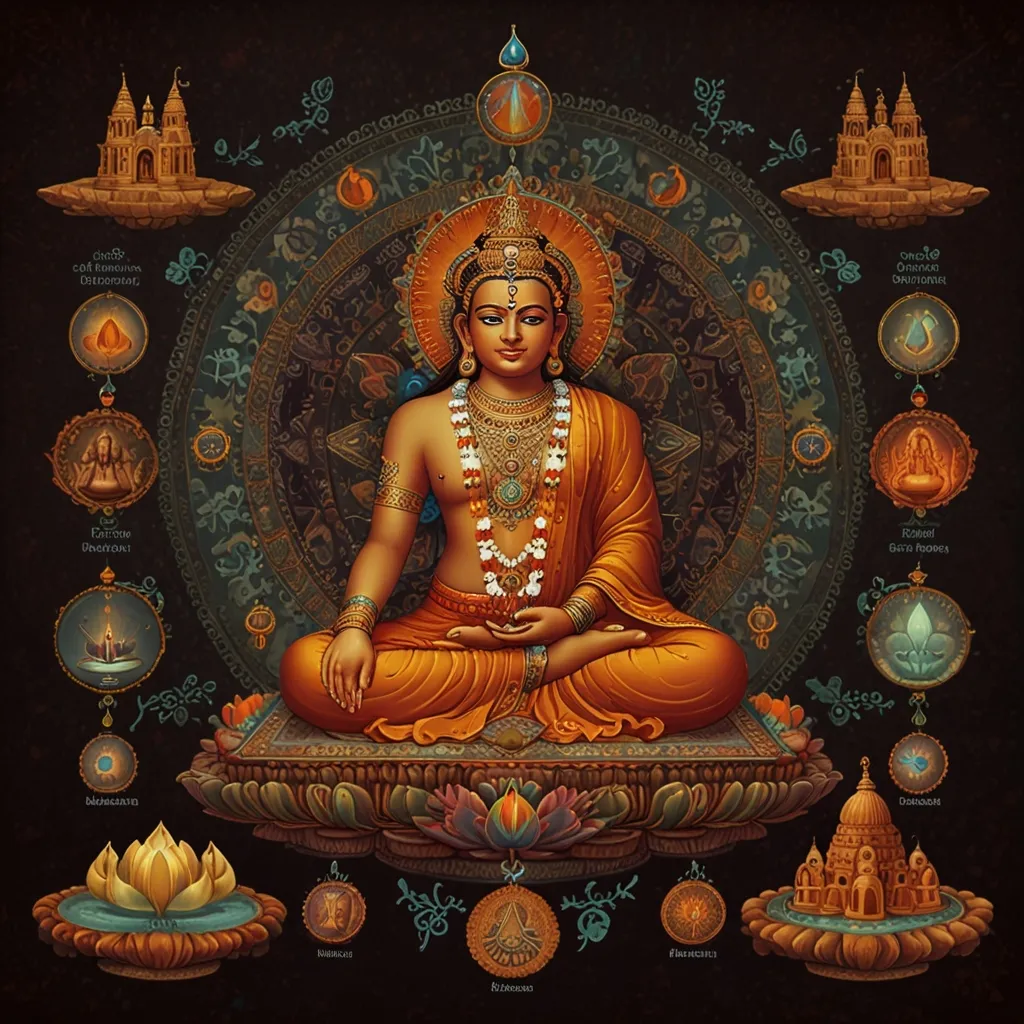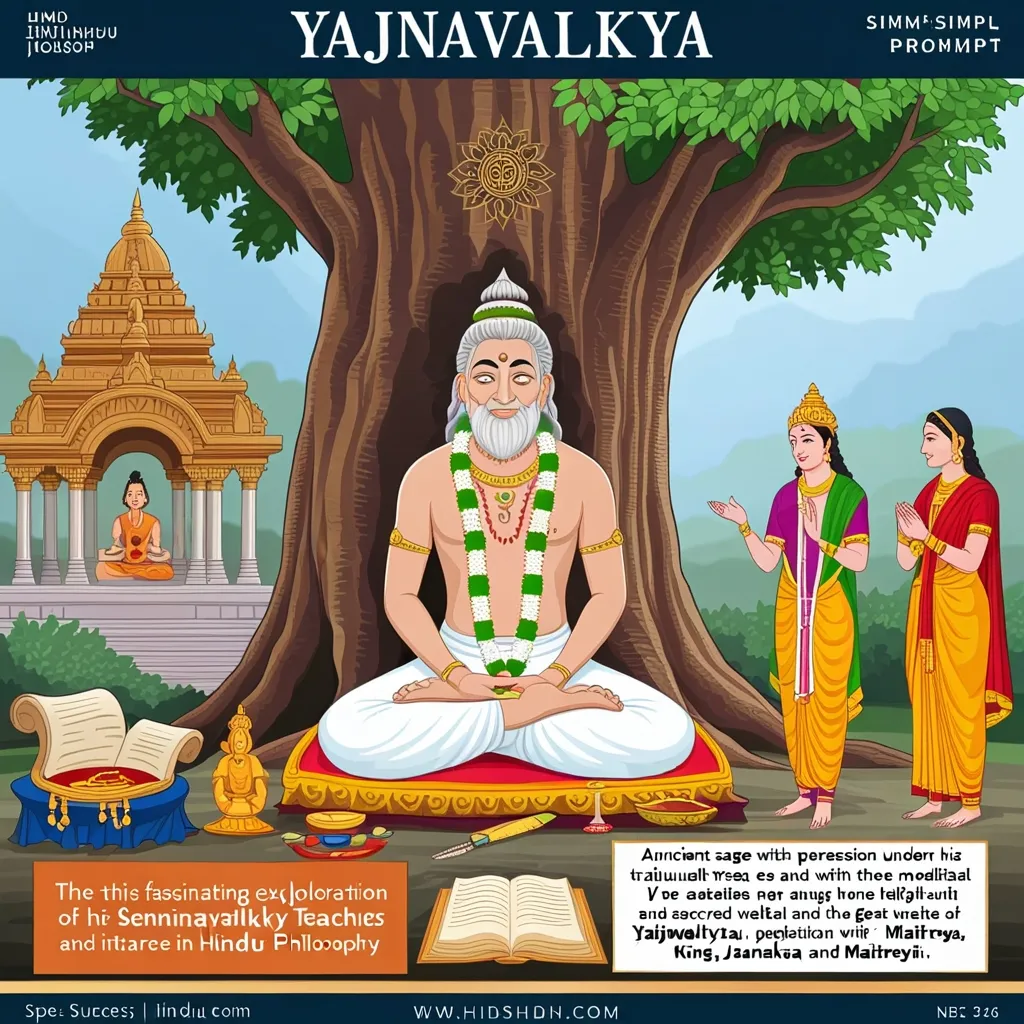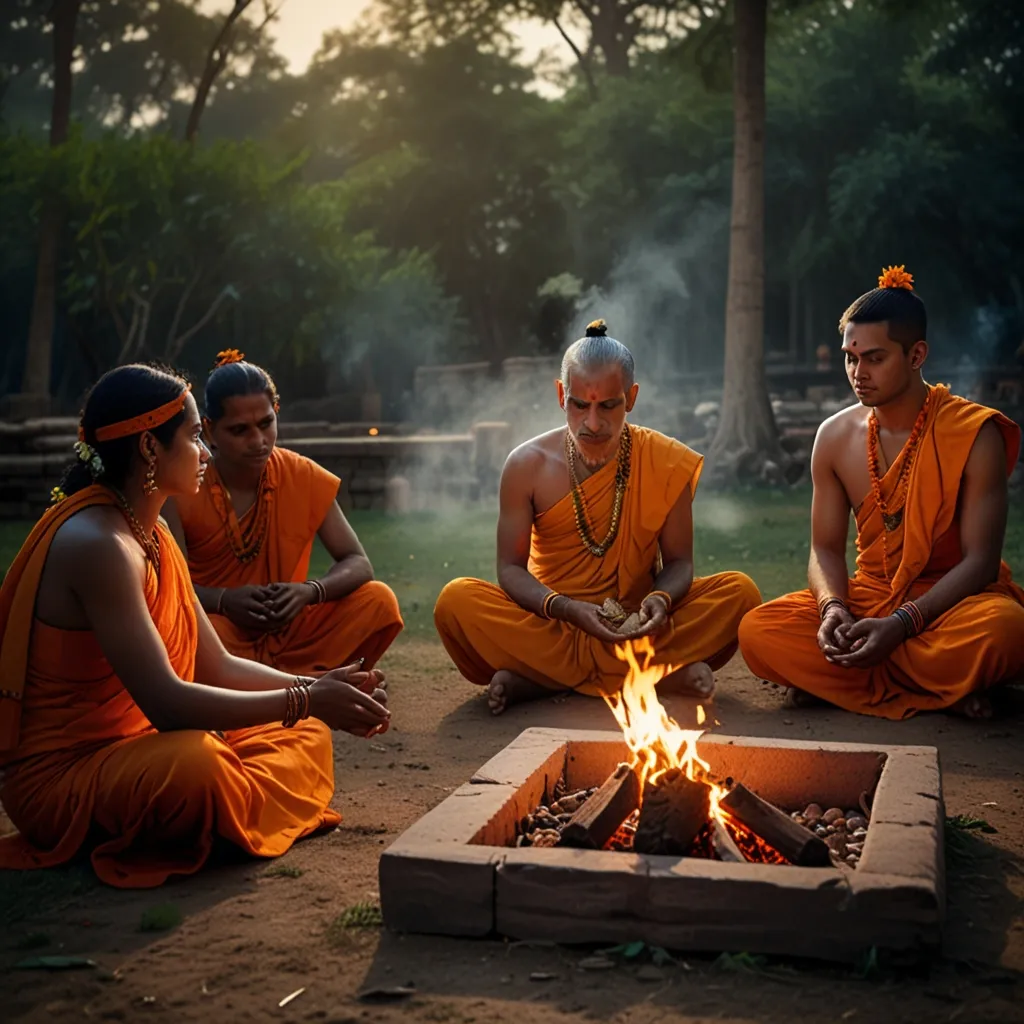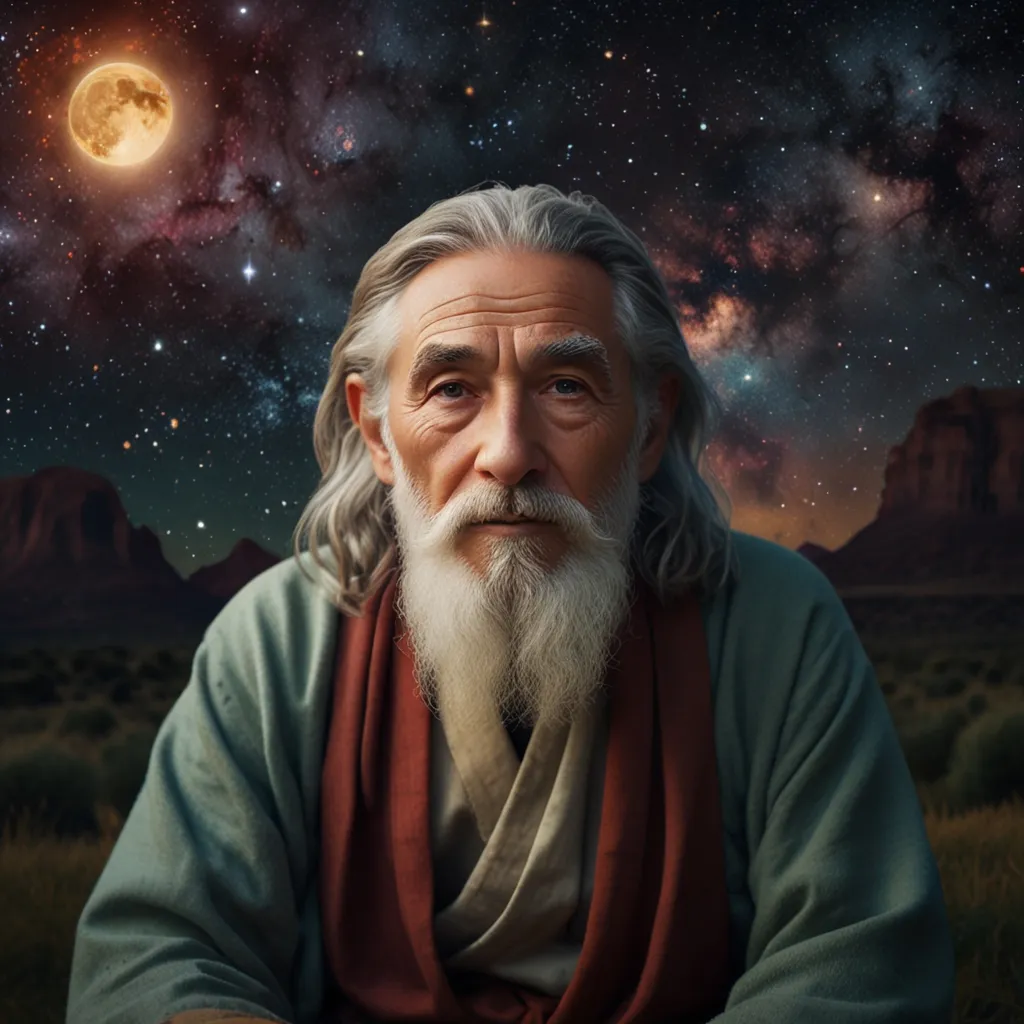In the vast and colorful world of Hinduism, Vedic astrology, or Jyotisha, is like a captivating thread in a rich tapestry. This ancient science mixes wisdom from long ago with starry observations and spiritual whispers. It’s a bit like having an old, wise friend who knows a thing or two about the cosmos and its influence on us. For millions in India, this goes way beyond just looking at daily horoscopes; it’s a guidebook for life.
Vedic astrology starts its roots in the Vedas, which are these ancient texts that hold a treasure chest of knowledge. Think of the Vedas as the encyclopedias of ancient India. Jyotisha is part of these six auxiliary disciplines in Hinduism, kind of like a major in college tied very closely to these huge, sacred texts. The word Jyotisha translates to “science of light,” and it basically covers the study of stars, planets, and timekeeping through observing celestial movements. In the old days, this wasn’t just about stargazing for fun—it was about keeping accurate time, marking calendars, and figuring out the best times for important rituals. This way, it becomes deeply woven into the cultural and spiritual fabric of Hindu life.
Central to Vedic astrology is the idea of karma. If you’ve ever heard someone say “what goes around, comes around,” they’re touching on karma. It’s the belief that our thoughts and actions have reactions. Vedic astrology ties this idea to the positions of planets and stars—basically, where the planets were when you were born can tell a lot about your life’s journey. It’s a map showing how your karma plays out. The whole deal underscores a key idea in Hindu thought: life’s a spiritual journey, and astrology is your cosmic guide.
Now, how does Vedic astrology differ from Western astrology? I’ll bet you’re familiar with the Western zodiac signs like Aries, Taurus, and Gemini, right? Well, here’s where it gets interesting. Western astrology hasn’t updated its constellation positions in over 2,000 years, but Vedic astrology has. This difference actually makes Vedic astrology more astronomically accurate. Because of Earth’s precession (a fancy term for tiny shifts over long periods in the Earth’s rotation), the stars are in slightly different positions now. Vedic astrology adjusts for this, meaning those born under a Western sign might find they actually belong to a different one in Vedic terms. This shift impacts how horoscopes are read and alters the influence these celestial bodies have on human lives.
Let’s talk about the modern touch to astrology. Western astrology today is all about psychology—it dives into your mind and spirit. However, Vedic astrology is grander in scale, balancing both material and spiritual aspects of life. It sticks to the causal relationship between planetary movements and real-world events. Imagine reading not just your mental vibes but also syncing it with fate or destiny. It might be why so many in India still turn to their stars for guidance in making big decisions.
In practical life, Vedic astrology’s influence is enormous. From naming babies to deciding on marriage, launching a business, or choosing when to move into a new house, astrology plays a starring role. It’s not just about believing; it’s about seeing heavenly bodies as influencing factors—the “fruits of karma.” Even highly educated folks can’t help but glance at their charts for guidance. Picture a top-tier professional or a retired military officer consulting their astrologer; it’s that integrated into everyday life.
Speaking of modern practices, one might think an ancient science like Vedic astrology would be stuck in time, but nope! Thanks to technology, Vedic astrology has branched into the digital age. These days, astrologers use sophisticated software to crunch the numbers. Renowned astrologers, some of whom have transitioned from high-profile careers, now run astrology institutes and offer super-detailed predictions thanks to computer software. It’s like downloading an ancient app with regular updates!
Interestingly, the spiritual side of Vedic astrology holds immense weight. It’s not just about getting the technical details right; it’s about the astrologer maintaining spiritual discipline. Qualities like honesty, humility, and detachment are a must. This spiritual integrity is key because Vedic astrology aims to guide souls on their life path, helping them see obstacles not as things to despair over, but as chances for growth.
Even in the scientific haven that is India, where space exploration is reaching new heights, astrology holds its ground. This coexistence of high-tech achievements and ancient practices isn’t seen as a contradiction. Astrology isn’t dismissed as mere superstition; instead, it acts as a helpful tool, offering insights to help people make better decisions. This balance shows the inclusive nature of Hinduism, marrying science, spirituality, and tradition harmoniously.
Vedic astrology’s charm isn’t limited to India. It’s caught the eye of many around the globe. While Western astrology sometimes faces critique for its generalizations and focus on psychological introspection, Vedic astrology offers depth, balance, and astronomical accuracy. This unique blend has rekindled interest in traditional astrological methods with people across the world eager to dive into this treasure trove of ancient wisdom.
In wrapping up, Vedic astrology goes beyond being a simple fortune-telling tool. It’s a profound way to understand the universe’s interconnectedness with human life. It’s shaped modern-day astrology in a big way, offering a holistic and spot-on approach. Navigating life’s twists and turns can be tricky, but the age-old wisdom of Vedic astrology is like that guiding star. Whether you’re making big life decisions or simply trying to understand your place in this vast cosmos, Vedic astrology remains a timeless, invaluable resource.
